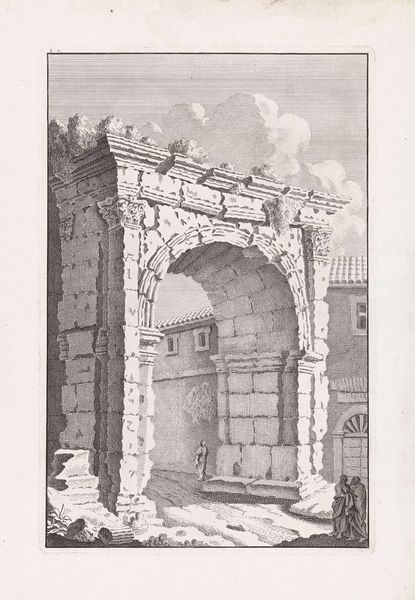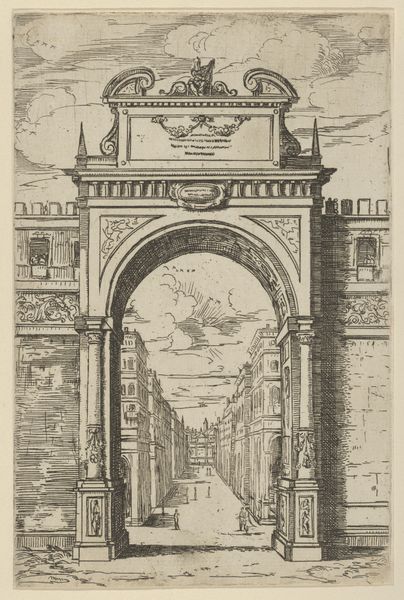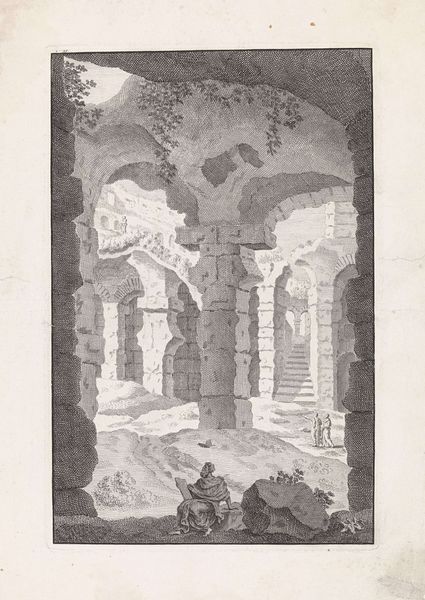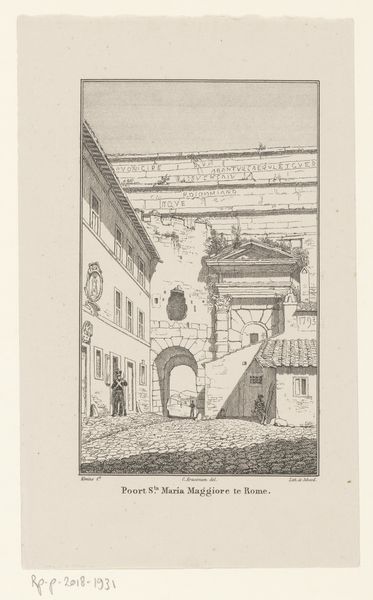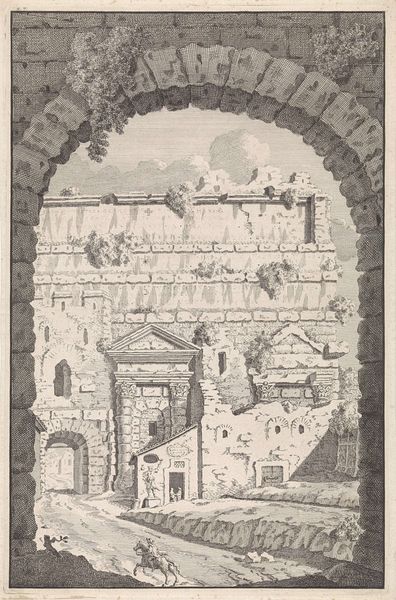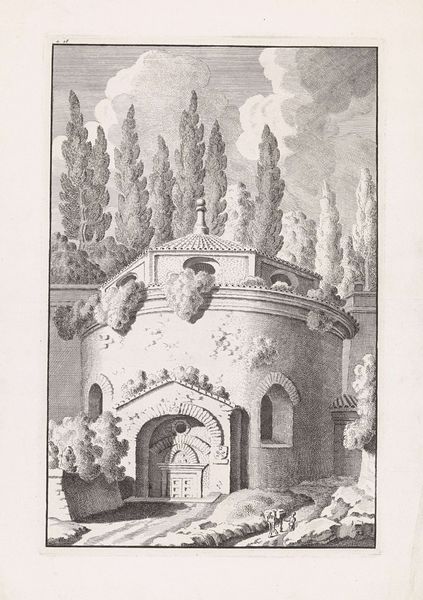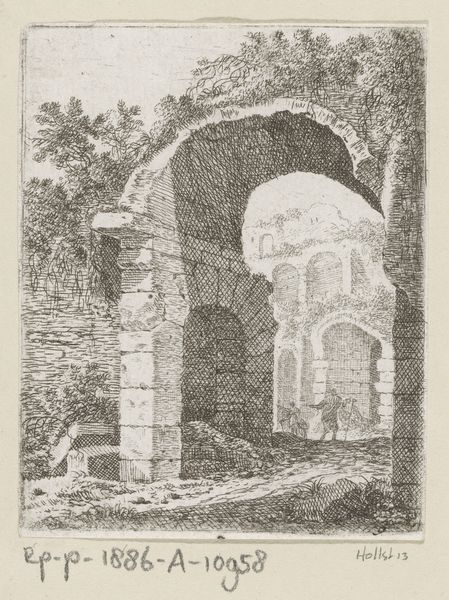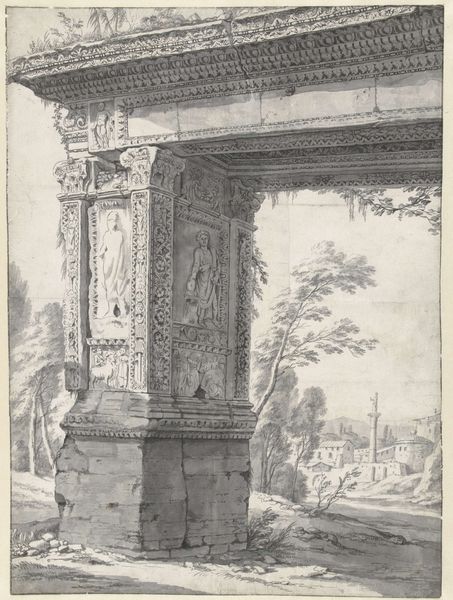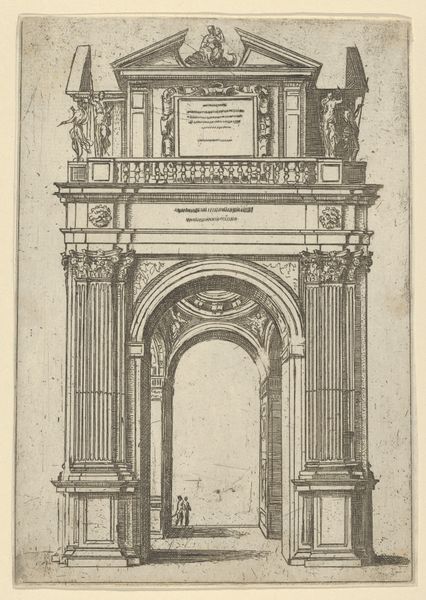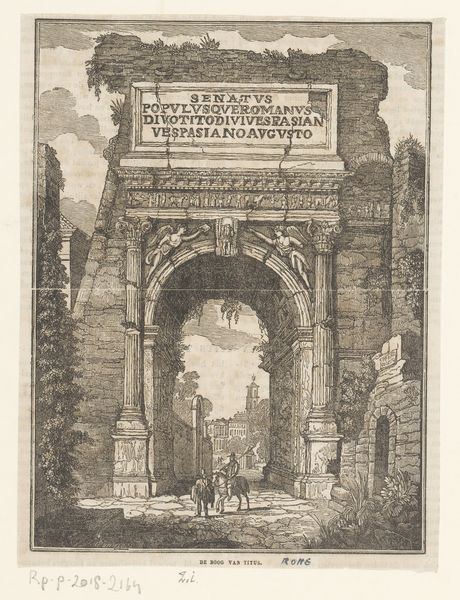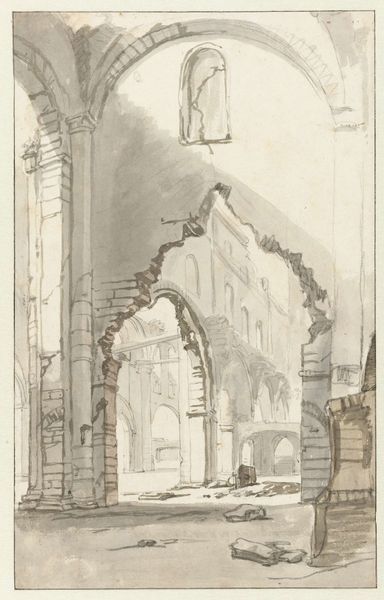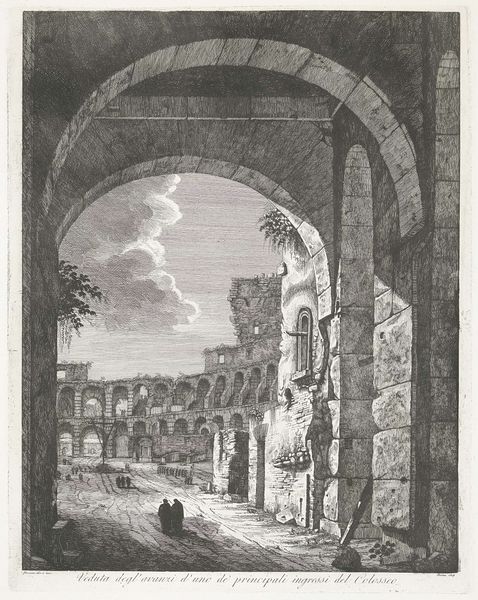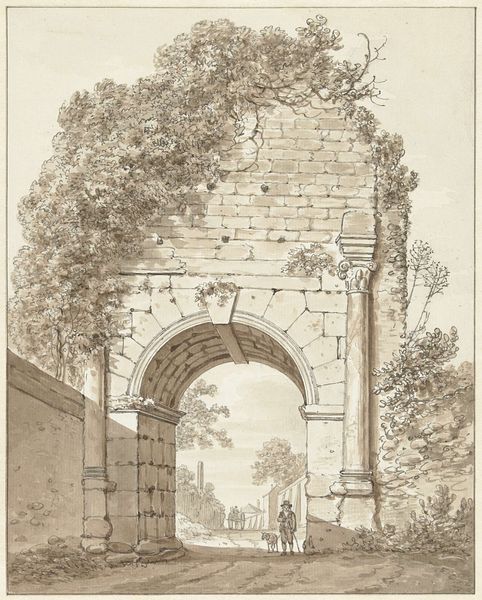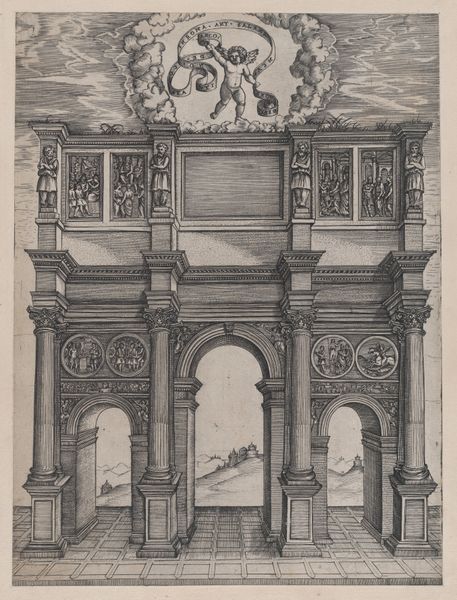
drawing, print, engraving, architecture
#
drawing
#
baroque
# print
#
form
#
line
#
cityscape
#
history-painting
#
engraving
#
architecture
#
realism
Dimensions: height 400 mm, width 264 mm
Copyright: Rijks Museum: Open Domain
Bonaventura van Overbeek made this print of a ruined Roman city gate around the turn of the 18th century. It presents us with a paradox that was central to European culture at the time: the glory of the classical past, juxtaposed with its physical decline. The image creates meaning through visual codes. Note the broken masonry, the classical frieze, and the tiny figures who are dwarfed by the monumental architecture. Van Overbeek was Dutch, and the Netherlands was then a major center for the study of classical antiquity. Ruins like this were popular subjects because they reflected on the cyclical nature of empires, including, perhaps, the Dutch maritime empire. The artist, and the cultural institutions that promoted his work, were deeply invested in the artistic conventions of their time. The print would likely have been acquired by a collector and placed in an album of similar images. A social history of art would look at the artist's other works, along with historical records, to understand the print in its original context.
Comments
No comments
Be the first to comment and join the conversation on the ultimate creative platform.
